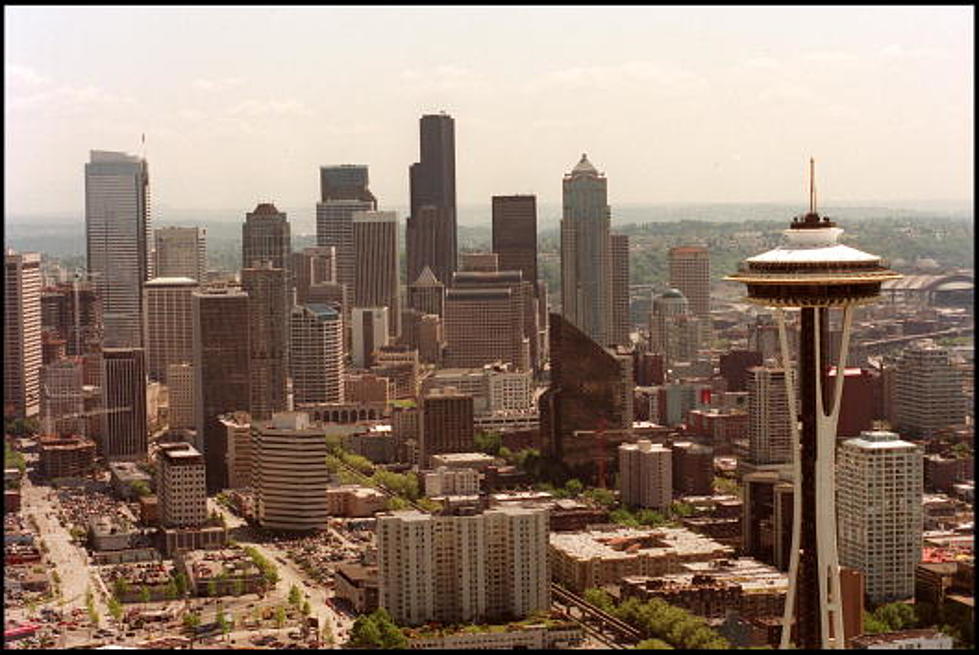
From WA? You Live in Earthquake Country So Be Prepared
Washington is earthquake country. In fact more than 1,000 earthquakes happen every year in the state. More than a dozen are strong enough to feel the ground shaking. Most however cause no damage. That was the case with a earthquake reported on Sunday night that shook the Seattle area.
THE SHAKER ON SUNDAY IS A REMINDER THAT YOU NEED TO BE PREPARED
The Pacific Northwest Seismic Network says the 4.5 magnitude shaker struck in Scow Bay. Residents reported feeling the shaking as far south as Kent in King County and as far north as Vancouver, B.C. Even though no damage was reported an earthquake could be very damaging in the state the reason why the American Red Cross is hoping you're prepared in case of an emergency with an emergency kit.
YOU KNOW DROP, COVER AND ROLL BUT WHAT HAPPENS AFTER?
Washington State is no stranger to natural disasters from earthquakes to volcanoes we’ve seen disasters first hand. Area wildfires are a perfect example of natural disasters we see every year in Yakima County. Medical and emergency organizations all across the United States agree that “Drop, Cover, and Hold On” is the "appropriate" action to avoid being injured or killed.

IF YOU'RE NOT PREPARED YOUR FAMILY COULD SUFFER
“Disasters can happen anywhere, anytime. We urge people to prepare now and be ready if an emergency occurs in their home or in our local community,” said Red Cross Northwest Region CEO Alex Dieffenbach. “Helping people during disasters is at the heart of our mission and climate change is a serious threat we are all facing. Help keep your loved ones safe - get Red Cross Ready today.”
WHEN BUILDING AN EMERGENCY KIT DON'T FORGET ABOUT WATER
Red Cross officials say first, build your emergency kit with a gallon of water per person, per day, non-perishable food, a flashlight, battery-powered radio, first aid kit, medications, supplies for infants or pets, a multi-purpose tool, personal hygiene items, copies of important papers, cell phone chargers, blankets, maps of the area and emergency contact information.
DON'T FORGET ABOUT YOUR PETS
Next, plan what to do in case you are separated from your family during an emergency and what to do if you have to evacuate. Coordinate your plan with your child’s school, your work and your community’s emergency plans. Don’t forget to include your pets. Remember, if you and your family need to evacuate, so does your pet. Know in advance which pet-friendly hotels are in your area, and where your pets can stay in an emergency situation.
MAKE SURE YOU DOWNLOAD THE KIT APP BECAUSE WE'LL HAVE THE NEWS YOU'LL WANT IN A DISASTER
Finally, plan to stay informed by finding out how local officials will contact you during a disaster and how you will get important information, such as evacuation orders.
Red Cross officials add that disasters can be scary for children. They say it’s vital that you talk with your kids about preparing for emergencies. The Red Cross has free programs and tools to help, visit redcross.org/youthprep for more information.
TIPS: Here's how you can prepare for power outages
LOOK: The most expensive weather and climate disasters in recent decades
Gallery Credit: KATELYN LEBOFF



